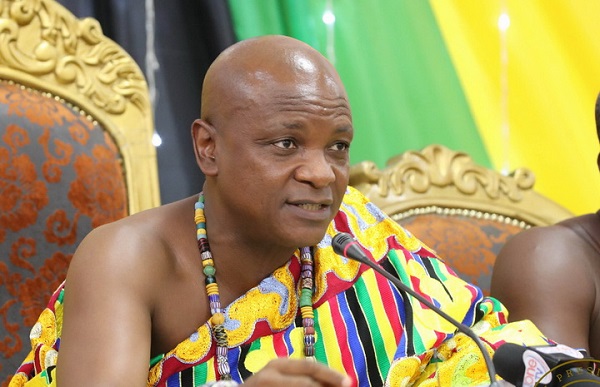Togbe Afede XIV, the Agbogbomefia of the Asogli State and respected businessman, has voiced his concerns regarding the Bank of Ghana's (BoG) interest rates, emphasising their potential impact on the Ghanaian cedi's stability.
In his remarks, he asserted that the Ghanaian Cedi would continue to face detrimental consequences as long as interest rates remained "unnecessarily high."
The BoG recently highlighted forecasts indicating a potentially elevated trajectory, citing various factors such as potential adjustments in transport fares, utility tariffs, and higher fuel prices.
The Central Bank stated that some factors collectively contribute to economic pressures and could influence the country's financial landscape.
However, in a piece dated April 11, 2024, Togbe Afede XIV expressed his belief that the Cedi's stability would significantly affect other prices, including transport fares, utility tariffs, and fuel prices.
He underscored the interconnectedness of various economic variables and the repercussions of interest rate policies on overall economic stability.
According to the respected chief, the persistence of unnecessarily high interest rates exacerbates the challenges faced by the cedi, amplifying its vulnerability to adverse consequences.
Togbe Afede XIV urged the central bank to take proactive measures and reassess its approach to interest rate management to mitigate the negative impacts on the currency's stability.
“The truth is, all these variables are related. Whilst the policy rate is an important tool of monetary policy, its misuse, as in our case, can have damaging effects. As long as interest rates are kept unnecessarily high, our currency, the cedi, will continue to suffer adverse consequences, with pass-through effects on other prices, including transport fares, utility tariffs and fuel prices."
“Persistent cedi depreciation has been a key factor in our energy (including power) sector problems. We have always felt the need to adjust prices, not because consumers were not paying enough, but because the cedi has been depreciating," he said.
Currently, the demand for the dollar and the other major foreign currencies has surged, culminating in a sharp depreciation in recent times.
It is going for about GH¢14.50 to one US dollar GH¢18.00 to one British pound in the retail market.
Latest Stories
-
Re: Petition against Justice Gabriel Scott Pwamang JSC
41 minutes -
Starmer and Trump discuss ‘productive negotiations’ on economic deal
2 hours -
Napoli beat AC Milan to keep pressure on Inter
3 hours -
Rare Roman coin fetches nearly £5,000 at auction
3 hours -
MTN FA Cup: Kwame Opoku’s late strike sends Kotoko through to semifinals
3 hours -
Why British boarding schools are so eager to open in Nigeria
3 hours -
Usher opens 10-night London residency, with mixed results
3 hours -
Chair of charity Harry quit calls prince’s brand ‘toxic’
3 hours -
More Myanmar quake survivors pulled from rubble
3 hours -
Trump ‘very angry’ with Putin over ceasefire negotiations
3 hours -
Trump says he ‘couldn’t care less’ about higher car prices
4 hours -
UK prepared to retaliate against US tariffs, No 10 sources say
4 hours -
Former GPHA boss questions ECG missing containers scandal
4 hours -
Narrow escape for driver, mate as vehicle overturns with goods at Kabampe
4 hours -
Missing ECG containers: ECG in clear breach of procurement laws – Dr Annan
4 hours

